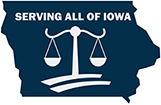- Kalona Truck Accident Injury Attorneys
- Phone: 641-792-3595
- Directions
In the expansive network of highways, trucking accidents can lead to significant disruption, often causing life-changing injuries for those affected. In such difficult moments, trucking injury lawyers stand as reliable advocates, offering support and direction to survivors. These legal experts excel in navigating the intricate terrain of trucking laws and regulations.
Understanding Truck Accident Claims: Preserving Evidence and Proving Liability
Truck accidents can result in severe injuries and complex legal battles. This comprehensive guide explores the intricacies of preserving truck driver records, establishing liability, and conducting thorough investigations to ensure fair compensation for victims. We will also discuss the importance of working with experienced attorneys to navigate these challenging cases.
Preservation of Truck Driver Records: Legal Requirements and Strategies
Commercial trucking companies are legally obligated to retain certain records for specific periods. Understanding these requirements is crucial for accident victims seeking to preserve evidence for their claims.
Legal Requirements for Record Preservation
1. Hours of Service Records: Trucking companies must preserve these records for six months. After this period, they may legally destroy the records.
2. Driver Qualification Files: These must be kept for the duration of the driver's employment plus three years thereafter.
Importance of a Spoliation Letter
To prevent the destruction of crucial evidence, a spoliation letter can be sent to the trucking company. This letter, typically issued by an attorney, requests the preservation of all relevant records, including:
- Medical records indicating the driver's fitness to operate the truck.
- Cell phone records to check for distracted driving.
- Qualification and employment history.
- Driving history, including violations.
The Role of the "Black Box"
The truck’s "black box" or electronic logging device (ELD) records vital data such as hours of service, speed, and brake usage. This information can be pivotal in proving whether the driver was compliant with federal regulations or fatigued at the time of the accident.
Liability in Commercial Truck Accidents
Determining liability in truck accidents often involves complex legal principles and multiple parties.
Potentially Liable Parties
1. Truck Driver: If the driver’s negligence, such as impaired driving or speeding, caused the accident.
2. Trucking Company: Under the legal doctrine of respondeat superior, the company may be held liable for the actions of its employees.
3. Independent Contractors: If the driver is an independent contractor, liability may rest with the driver rather than the company.
4. Manufacturers and Shippers: In cases involving defective truck parts or improper loading, manufacturers or shippers may be held accountable.
Proving Negligence
To hold the at-fault party liable, you must demonstrate their negligence through evidence such as:
- Failure to maintain the vehicle.
- Improper loading of cargo.
- Violations of traffic laws.
- Aggressive or impaired driving.
Conducting a Thorough Truck Accident Investigation
A comprehensive investigation is essential to gather evidence and build a strong case. Trucking companies and their insurers often employ various tactics to minimize their liability, making it imperative for victims to have skilled legal representation.
Reasons for an Investigation
1. Preservation of Evidence: Ensuring critical documents and data are not destroyed.
2. Collecting Documentation: Obtaining records from the truck company, including maintenance logs and driver hours.
3. Countering Insurance Tactics: Insurance companies may attempt to diminish or deny claims; a thorough investigation helps counter these efforts.
Steps in an Investigation
1. Send a Spoliation Letter: This legal notice demands the preservation of evidence.
2. Gather Records: Collect maintenance logs, employment records, and the truck’s "black box" data.
3. Document the Scene: Photographs, witness statements, and police reports provide essential context.
Additional Considerations in Truck Accident Cases
Role of Insurance
Trucking companies often have robust insurance policies and experienced legal teams. Victims should be aware of the following:
1. Insurance Company Tactics: Insurers may offer quick settlements that seem appealing but may not cover long-term expenses.
2. Legal Representation: An experienced attorney can negotiate with insurance companies to secure a fair settlement.
Legal Deadlines
Iowa Code 614.1 allows two years to file a claim for damages from a truck accident. It's crucial to act promptly to preserve your right to compensation.
Contacting Walker, Billingsley & Bair
At Walker, Billingsley & Bair, our team is committed to ensuring you receive the compensation you deserve. We handle all injury cases on a contingency fee basis and manage all necessary documentation and communications.
Walker, Billingsley & Bair is prepared to act fast to defend your rights after a truck accident in Iowa. Contact our office at 641-792-3595 to speak with an attorney.

